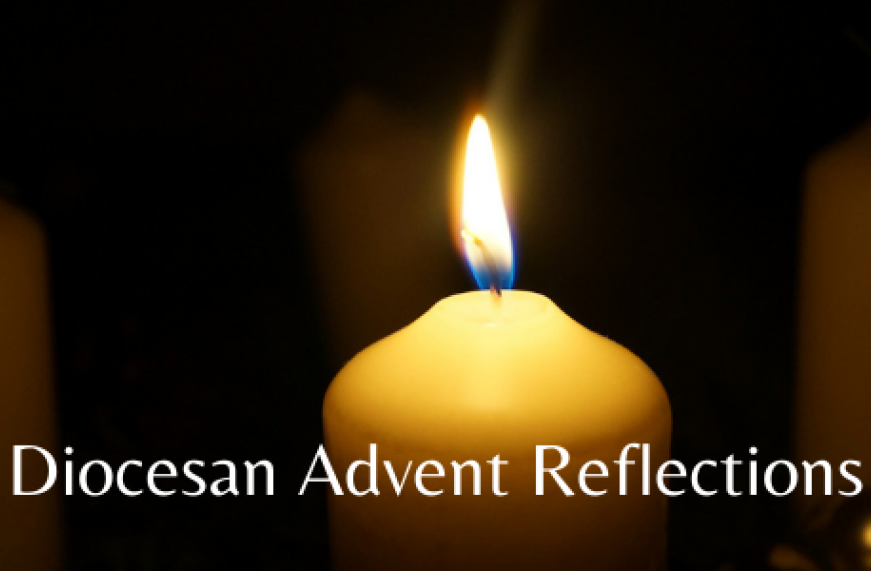First Tuesday of Advent - December 1
Psalms 5, 6 · 10,11
Isa. 1:21-31
1 Thess. 2:1-12
Luke 20:9-18
Here’s the thing: it’s all too easy to identify the tenants in Jesus’ parable with the people I dislike the most in real life. By “people I dislike the most” I mean those who stand on the other side of the political line that has been feverishly drawn in the sand, or the folks who still cling to that outdated flavor of Christian fundamentalism which I feel compelled to heartily reject because I am an enlightened Episcopalian.
It is also all too tempting to see myself as one of the vineyard owner’s noble servants, as a prophetical figure who attempted to set all of these narrow-minded people straight but to no avail. And perhaps I wouldn’t be completely unjustified in reading Jesus’ parable in this way. After all, verse 19 tells us that the chief priests and the religious teachers knew that Jesus was teaching this parable “against them.” The religious teachers of Jesus’ time seemed to be far more obsessed with law keeping than with love, and just as it is in our day (in certain Christian circles, at least) some laws were highlighted to the detriment of others.
These teachers clearly handpicked and sometimes made up the laws that best suited their own agendas, and they judged and rejected those who did not measure up to their fabricated ideals of holiness. These teachers were more adamant about their own traditions than they were with human flourishing, but their traditions were clearly an innovation in Israel’s religious life.
There is a reason why we don’t read about the Pharisees, for example, in the Old Testament. These new traditions were mostly reactionary stances to the political situation of the day. If these teachers would have had a motto it would have been “Make Israel Great Again.” There is nothing new under the sun, so it seems.
The chief priests of Jesus’ time were no better, being people who directly colluded with the Roman government. They partnered with Rome in oppressing the Hebrew people, especially those who made up the peasant class. The chief priests of Israel used to bear the image of God to the people, but in Jesus’ time they were seen as nothing more than the demonic incarnations of the “imperial domination system,” to borrow a line from Marcus Borg. Yet, if I were to read the parable in this way, the way that flatters my side of things, I would fail to see its wisdom. If I were to read the parable in this way, I too will prove to be someone that Jesus is telling this parable “against.” If I were to read this parable in such a way where I am oblivious to the fact that I am also the type of person that this parable can be told “against,” I would reveal that I have less self-awareness than even the chief priests and religious teachers. At least they knew this parable was being told “against them.” To use Jesus’ words to condemn others as I seek to justify my own agendas (political, denominational, or otherwise), is precisely the type of thing that Jesus is seeking to condemn. The whole point of Jesus’ parable is to condemn condemnation.
As John says, “God did not send his Son to condemn the world, but to save the world through him.” To use this parable as means to condemn all the condemners only perpetuates the problem. Furthermore, I imagine that the tenants all thought they could do a much better job running the show if only that pesky vineyard owner, and his servants, and his son were out of the picture.
Just because the tenants felt this way, though, it did not give them the right to act upon the impulse. I do not have the right to think and act in such ways either. If the only way I can envision a better world—a “Thy Kingdom come” sort of situation for this world—is by imagining that all the people I deem as “troublesome” are no longer in it, I will have failed to grasp the scope of God’s dream and the breadth of God’s love.
My friends, as we continue into this season of Advent we must consider how we have played a part in keeping the wheels of condemnation turning, how we are more like the vicious tenants than we would like to admit. How have we wished away the presence of others? How have we deafened our ears to a prophetic word simply because that word was uttered from the mouth of someone we didn’t care to listen to? How have we been oblivious to the image of God in those who don’t see the world quite like we do? How can we break the cycle of condemnation in our own lives?
The Rev. TJ Humphrey
St. Paul’s Episcopal Church, Beloit

